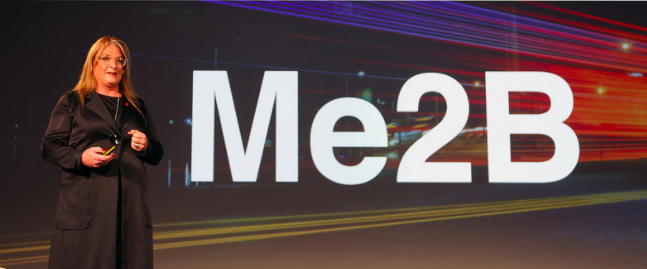Somehow Martin Geddes and I were both at PIE2017 in London a few days ago and missed each other. That bums me because nobody in tech is more thoughtful and deep than Martin, and it would have been great to see him there. Still, we have his excellent report on the conference, which I highly recommend.
The theme of the conference was #Me2B, a perfect synonym (or synotag) for both #VRM and #CustomerTech, and hugely gratifying for us at ProjectVRM. As Martin says in his report,
This conference is an important one, as it has not sold its soul to the identity harvesters, nor rejected commercialism for utopian social visions by excluding them. It brings together the different parts and players, accepts the imperfection of our present reality, and celebrates the genuine progress being made.
Another pull-quote:
…if Facebook (and other identity harvesting companies) performed the same surveillance and stalking actions in the physical world as they do online, there would be riots. How dare you do that to my children, family and friends!
On the other hand, there are many people working to empower the “buy side”, helping people to make better decisions. Rather than identity harvesting, they perform “identity projection”, augmenting the power of the individual over the system of choice around them.
The main demand side commercial opportunity at the moment are applications like price comparison shopping. In the not too distant future is may transform how we eat, and drive a “food as medicine” model, paid for by life insurers to reduce claims.
The core issue is “who is my data empowering, and to what ends?”. If it is personal data, then there needs to be only one ultimate answer: it must empower you, and to your own benefit (where that is a legitimate intent, i.e. not fraud). Anything else is a tyranny to be avoided.
The good news is that these apparently unreconcilable views and systems can find a middle ground. There are technologies being built that allow for every party to win: the user, the merchant, and the identity broker. That these appear to be gaining ground, and removing the friction from the “identity supply chain”, is room for optimism.
Encouraging technologies that enable the individual to win is what ProjectVRM is all about. Same goes for Customer Commons, our nonprofit spin-off. Nice to know others (especially ones as smart and observant as Martin) see them gaining ground.
Martin also writes,
It is not merely for suppliers in the digital identity and personal information supply chain. Any enterprise can aspire to deliver a smart customer journey using smart contracts powered by personal information. All enterprises can deliver a better experience by helping customers to make better choices.
True.
The only problem with companies delivering better experiences by themselves is that every one of them is doing it differently, often using the same back-end SaaS systems (e.g. from Salesforce, Oracle, IBM, et. al.).
We need ways customers can have their own standard ways to change personal data settings (e.g. name, address, credit card info), call for support and supply useful intelligence to any of the companies they deal with, and to do any of those in one move.
See, just as companies need scale across all the customers they deal with, customers need scale across all the companies they deal with. I visit the possibilities for that here, here, here, and here.
On the topic of privacy, here’s a bonus link.
And, since Martin takes a very useful identity angle in his report, I invite him to come to the next Internet Identity Workshop, which Phil Windley, Kaliya @IdentityWoman and I put on twice a year at the Computer History Museum. The next, our 26th, is 3-5 April 2018.

